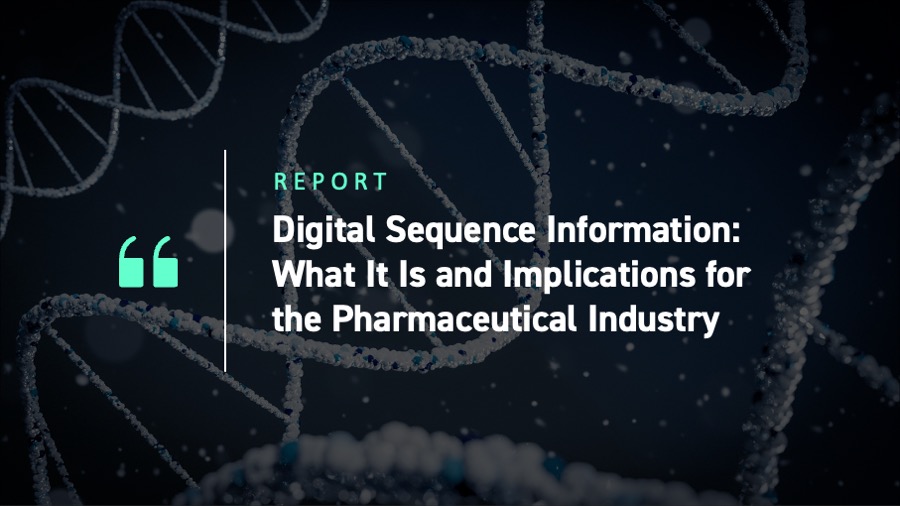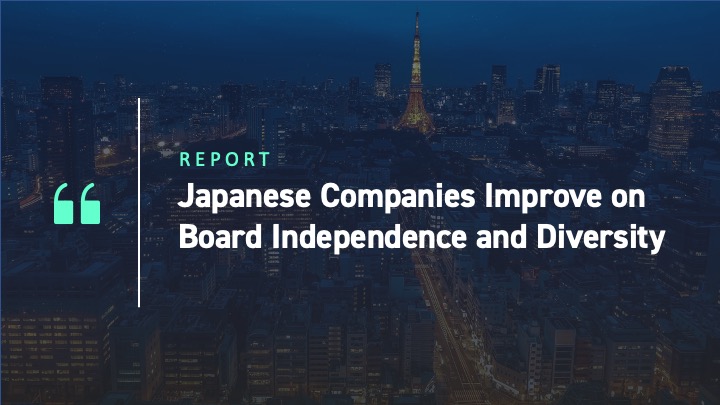What Is DSI and Why Is It Important?
Digital Sequence Information (DSI) is a placeholder term that refers broadly to the digital use of genetic resources and its derivatives. This includes the details of an organism’s genetic data, which determine its characteristics and unique traits.
DSI enables swift analysis and comparison of genetic data, greatly accelerating the identification of potential drug targets and the development of new therapies. DSI also enables researchers to develop transformative therapies without the need of physical samples. Genomic databases such as NIH’s GenBank (NIH genetic sequence database), dbGaP (database of genotypes and phenotypes), and dbSNP (database of single nucleotide polymorphisms); EMBL-EBI (European Bioinformatics Institute); and DDBJ (DNA bank of Japan) host repositories of DSI, fostering international collaboration and innovation.
Pharmaceutical and biomedical companies’ use of DSI has broader environmental and social implications. In particular, efforts to share DSI’s benefits equitably while preserving biodiversity may have implications for sustainability-focused investors.
Case Studies of DSI Use by the Pharmaceutical Industry
The data made available through DSI has led to significant innovations in vaccine and drug development and pathogen tracking and surveillance. Notable cases of pharmaceutical companies drawing on DSI include the following:
COVID-19
In early January 2020, scientists from China, in collaboration with their global colleagues, made the genomic sequence of SARS-CoV-2 publicly available. Pharmaceutical companies across the globe leveraged SARS-CoV-2 data to develop a variety of vaccines that saved millions of lives and generated significant revenues. Such data also has facilitated the surveillance of viral mutations and variants by governments and relevant agencies, steering rapid public health interventions.
Ebola
Researchers studying the 2014-2016 Ebola outbreak in West Africa sequenced the virus to understand its evolution and transmission. The sequence was made publicly available on the GenBank database and leveraged by a pharmaceutical company to develop an antibody-based therapy that provides effective treatment for a notorious disease with a mortality rate of 50%.
GLP-1 Drug
In recent years, GLP-1 agonist drugs have revolutionized the treatment of type 2 diabetes and obesity. According to one estimate, the GLP-1 drug sales will reach $111 billion by 2033 in major markets such as the United States and Japan. The development of GLP-1 analogues was partly informed by genomic studies and DSI, particularly from species such as the Gila monster (Heloderma suspectum), a species classified by the IUCN as ‘near threatened,’ whose saliva contains ‘exendin-4’, a molecule similar to the human GLP-1 hormone.
In addition to these applications, DSI can be a useful tool for ‘bioprospecting’: exploration of natural sources for small molecules, macromolecules, and biochemical and genetic information that could be developed into commercially valuable products for the agricultural, cosmetics, or pharmaceutical industries.
Biodiversity, DSI Benefits, and the Cali Fund
Nature-based resources can contribute significantly to innovation in a vast array of industries, including pharmaceuticals. For example, an estimated 70 percent of current antibiotics and cancer treatments are derived from natural organisms. Microorganisms, such as yeasts, are engineered to produce a variety of cosmetic, food, and pharmaceutical ingredients.
Thus, the genetic data extracted from nature holds significant commercial value. Nature’s ecosystem services contribute tremendously to the world economy, with one estimate placing ecosystems’ value at $179 trillion, or roughly 1.7 times global GDP.
These ecosystems are in a precarious situation, though. Nature is declining globally at an unprecedented rate, with roughly 1 million animal and plant species facing the risk of extinction.
Global efforts are accordingly underway to protect potential biodiversity-rich regions and their diverse gene pools. The UN Convention on Biological Diversity (CBD) is an international treaty aimed at conserving biodiversity, promoting sustainable use of its components, and ensuring fair and equitable sharing of its benefits. The Nagoya Protocol established by the UN COP of the CBD identifies the need for “a global multilateral benefit-sharing mechanism to address the fair and equitable sharing of benefits derived from the utilization of genetic resources.” The conferences of parties of both the CBD and the Nagoya Protocol subsequently addressed the issue of DSI on genetic resources in 2016. The Kunming-Montreal Global Biodiversity Framework, adopted at the 15th meeting of the CBD (COP15), in December 2022, includes a decision to establish a separate, multilateral benefit-sharing mechanism for the use of DSI.
The Cali Fund, a new biodiversity finance mechanism, was developed during last year’s COP16 as a means of sharing DSI’s benefits more fairly and equitably. This fund is expected to bring in as much as $1 billion annually from commercial DSI uses. In the resumed session of COP16 last week, it has been agreed and recognized that half of the acquired amount in the Cali fund is expected to go to Indigenous peoples and local communities including women and youth, either directly or through national governments. The disbursements of the Fund will also serve to boost the implementation of the Kunming-Montreal Global Biodiversity Framework (KMGBF) to halt and reverse biodiversity loss adopted under the CBD.
The fund guidelines focus on larger companies that are most dependent on DSI of natural resources and exempt academic institutions, public research institutions, and other entities using DSI but not directly profiting financially from them. The COP16 draft decision on the fund specifies that companies that directly or indirectly benefit from DSI’s commercial use should contribute to the global fund 1 percent of their profits or 0.1 percent of their revenue.
DSI, ESG, and Key Investor Considerations
DSI intersects with ESG themes and is relevant when considering Environmental, Social, and Governance aspects of pharmaceutical companies:
- Environmental: Companies using DSI in line with international agreements, such as the Nagoya Protocol, contribute to biodiversity conservation. Further, the use of DSI, which does not require physical sampling, mitigates the risks associated with physical sampling and species harm and is less resource intensive.
- Social: Ethical use of DSI and fair sharing of benefits with nations and communities providing genetic resources address the key issues of social equity.
- Governance: Companies using DSI need to adhere to international treaties and local regulations. The use of DSI also involves intellectual property and data privacy issues. Transparency and compliance thus become essential factors.
Because of these ESG implications, as the DSI agreements and frameworks take shape, more stakeholders will want transparency around the use of DSI and its impact on biodiversity and social equity.
Implications of Benefit Sharing
CBD efforts to distribute DSI benefits equitably, such as the Cali Fund, may create both challenges and opportunities for pharmaceutical companies. For example, firms involved in pharmaceutical R&D would need to create mechanisms to track the use of DSI in their product development. Also, the financial implications for the pharmaceutical companies will likely affect profit margins and pricing strategies.
A key challenge to the implementation of CBD benefits-sharing plans is the fact that the United States, an important hub of pharmaceutical innovation, is not a party to the CBD. U.S.-based companies are therefore not obligated to make any contribution to the Cali Fund, although they can use DSI data in their R&D.
Nevertheless, pharmaceutical companies making contributions to the Cali Fund may attract investors interested in conserving biodiversity and supporting indigenous communities as stewards of nature. Such companies may also, through sustainable and responsible use of DSI and fair and equitable benefit sharing, promote expansion of DSI, which could further drive innovation and their own growth. Finally, contributing to such initiatives could improve a company’s brand perception among sustainability-conscious consumers.
DSI is currently being used globally for profit generation. The International Federation of Pharmaceutical Manufacturers and Associations (IFPMA) on the conclusion of COP16 negotiations over DSI stated that new technologies that use DSI can contribute to the conservation and sustainable use of natural resources. Institutional investors may have significant opportunities to support companies transitioning to such nature-based solutions and sustainable practices.
Conclusion
DSI is important to a variety of industries, including the pharmaceutical industry. Pharmaceutical companies that are early adopters of responsible use of DSI may improve their sustainability profile through their commitment to biodiversity conservation, equitable benefit-sharing, and robust governance practices, promoting long-term value creation. Investment through DSI and corporate benefit-sharing can support nature-positive investing, targeting the health and growth of ecosystems and mitigating related risks.
Explore ISS ESG solutions mentioned in this report:
- Identify ESG risks and seize investment opportunities with the ISS ESG Corporate Rating.
- ISS ESG’s Biodiversity Impact Assessment Tool helps investors assess the impact of companies’ business and supply chain activities on biodiversity.
By:
Debaprasad Sengupta, Senior Associate, Biodiversity Lead – Natural Capital Research Institute, ISS STOXX
Dr. Tanay Gunjikar, Associate Vice President, Sector Lead – Healthcare, ISS STOXX




